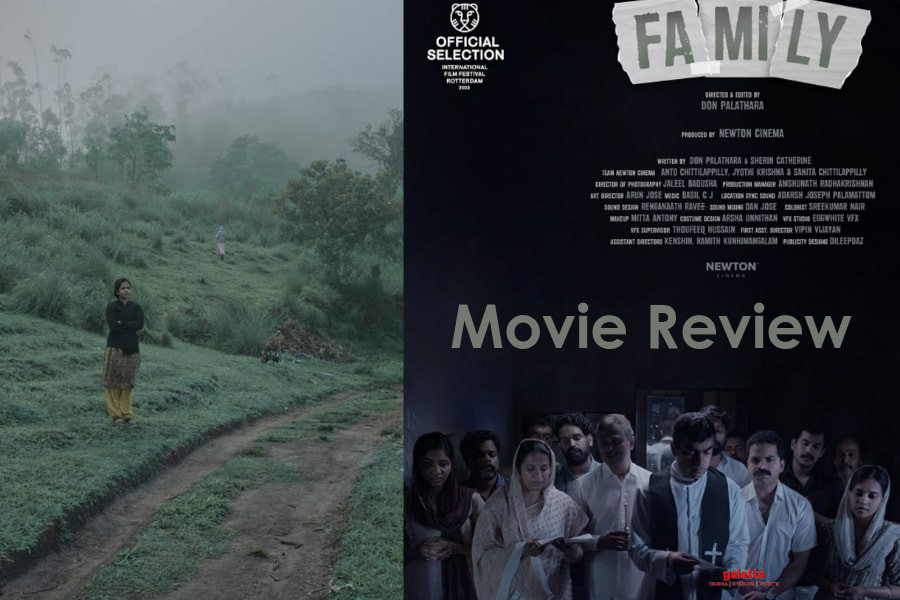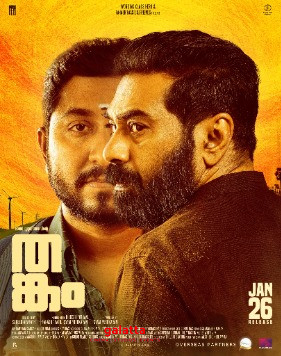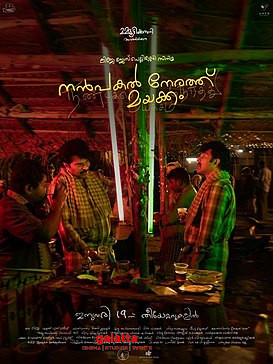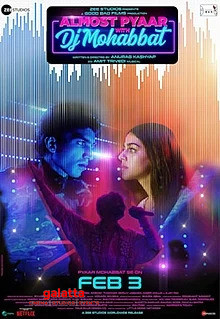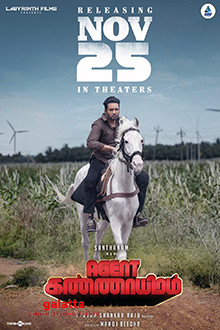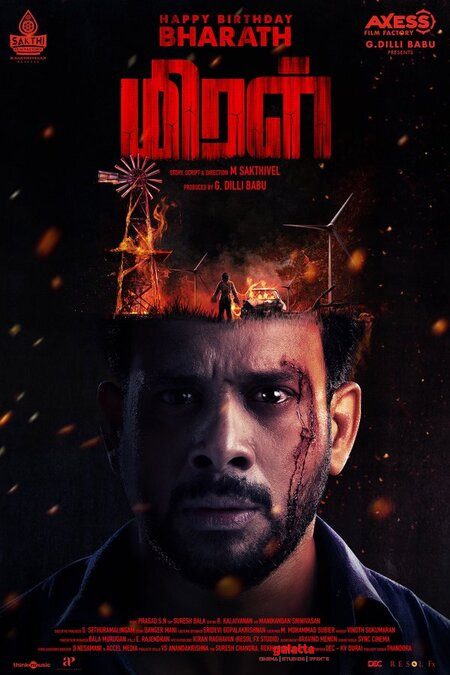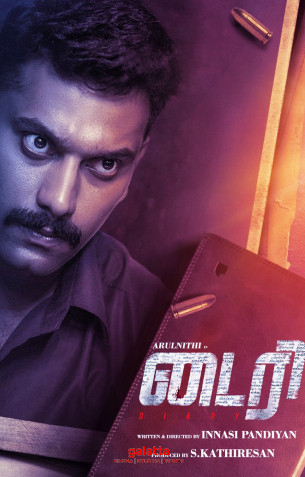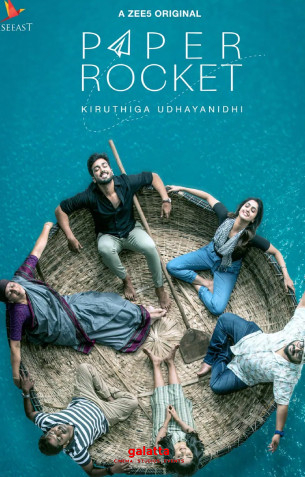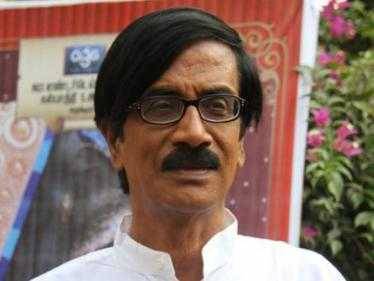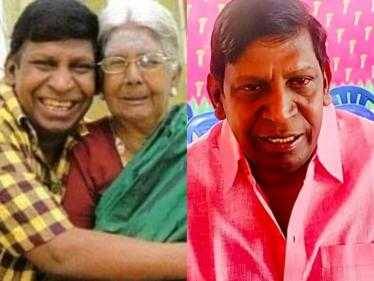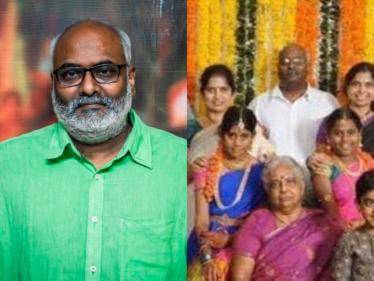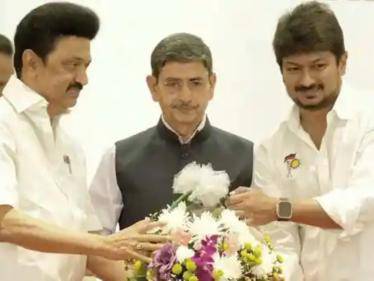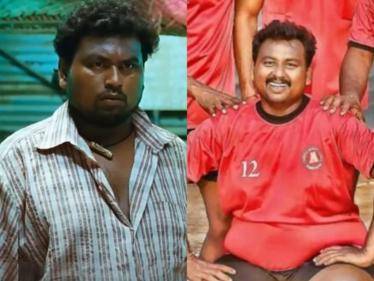Family Movie Cast & Crew
The title of Don Palathara's new film, which had its world premiere at the International Film Festival of Rotterdam this year, is a simple word, a heartwarming word: family. It's the kind of word you'd use to describe the bunch of people, in this small village, who gather to haul out a cow that has fallen into a ditch. You’d say the community has come together as a "family". But an early scene shows us that the word can be something sinister, too. During a theatrical wedding ritual, a barber is assigned to spruce up the groom. Under normal circumstances, this would just mean giving a shave or a facial. But here, there's something the barber needs to do first. He needs to ask everyone gathered whether they give him permission to beautify the groom. He asks the people on the left side of the hall, and then he asks those on the right side. And only when everyone says "yes" does he begin to do his job.
In this village, "family" is the community at large. There's an eerie visual of insects buzzing in a forest. That's what this community is like: a swarm where it's impossible to pick out an individual insect from the collective. But slowly, the screenplay (by the director and Sherin Catherine) singles out a failed teacher named Sony (Vinay Forrt, who slips almost invisibly into this milieu with a delicate performance whose shades we realise only later). Sony may not have much of a salary but he has a lot of goodwill in the community. He helps a younger boy prepare for a poetry competition. He helps a young girl who's weak in maths. When asked how much these tuitions will cost, he says, "Set the amount yourself." A priest asks him to teach high-school children. Best of all, he hears out a female relative as she vents about her troubles in her kitchen, and he does this while helping with her chores.
In short, Sony is a good Christian – and what is this religion if not a "family" headed by a heavenly "Father"! Like in all of Don's films, every house, every room has a reminder of Christianity. In a savagely funny scene, the entire family gathers in choral prayer while a small boy lies asleep on a small sofa placed right in the front of the frame. He’s oblivious to the deafening chants. Maybe only the very young can escape – or be excused from – conforming to a community. Family is a return to form for Don Palathara – and I refer to the form of his cinema. The non-stop dialogue of his last film Santhoshathinte Onnam Rahasyam helped us follow a sort of "story", and the camera mounted in the car – though it did not move at all – gave us a sense of movement, because of the movement of the vehicle.
But here, Don is back to the carefully composed static shots of Shavam, Vith, and 1956 Central Travancore. When a woman elopes, the frame is so distinct that only the exterior of the house is needed to know which family she belongs to. And for the first time, I wondered if Don’s still, dispassionate camera was a representative of a still, dispassionate God who sees everything and says nothing. Ingmar Bergman famously struggled with "the silence of God," and Don appears to extend that mute-witness aspect of God, someone who watches over this tranquil community but neither helps the good nor punishes the wicked. Things take a turn when a predator enters the village: a leopard begins to prey on chicken and calves. And we see that the tranquillity of this community is only an illusion.
There are other things going wrong, too. A schoolboy is caught swearing at a girl. A woman thinks she has witnessed a man having an affair with someone much younger. Then there's that elopement, followed by some loose talk and a suicide. (After all, in a "family", everything is everyone's business.) Even Sony, who is like a "son to everyone", is clearly not as well-loved as we thought he was: a young man snaps at him and asks to be left alone. A nun – supposedly someone who has no more business with or interest in worldly affairs – offers advice like a parent would offer a confused child. Each of these scenes is a narrative unit, and it all comes together at the end. The predator, it turns out, was not just the leopard. And hereon, we are going to enter serious spoiler territory, so watch out!
We catch a glimpse of the leopard, the obvious predator – but Sony is the invisible predator. And instead of casting him away, the community – the "family" – rallies around him. He is given a job, a wife. I use the word "given", because these are not his choices. But if he wants to continue in this community, he needs to conform. (Guess who brings the marriage proposal: it's the nun!) The biggest achievement of this wonderful film is the empathy it creates for its villain. He is brainwashed. At least in prison, he'd still be himself, an individual, however flawed and dangerous. But now, he's been neutered. I interpreted the freeze frame at the end as a kind of photograph: the character is stripped of all mobility and frozen into his surroundings. He has no free will anymore. He is part of the family. Or put differently, there’s no escape from this family.
